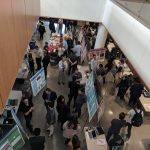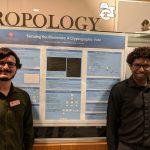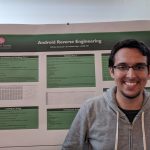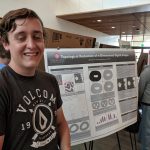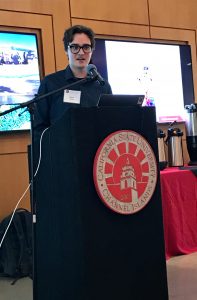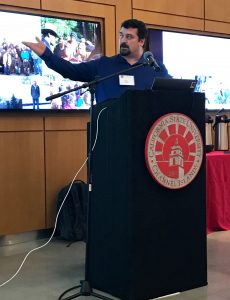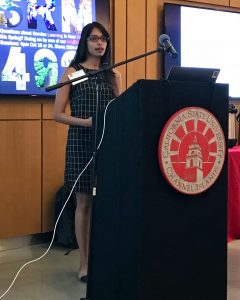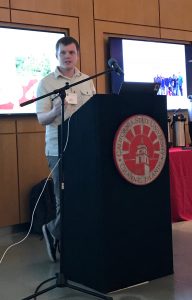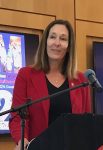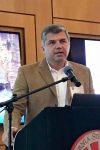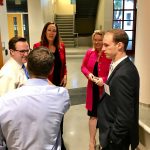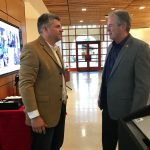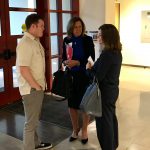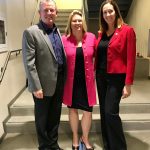On May 10, 2018, the department of Computer Science, which is composed of four programs: Computer Science (CS), IT, Mechatronics and the masters program in CS (MSCS), held its second Advisory Board meeting. The first meeting took place on November 3, 2017.
The Advisory Board consists of leaders in the industry and public service in Ventura County, and its mission is to:
- Champion the department in the community.
- Help with placement of our students in internships and full time positions.
- Support the curriculum.
- Provide access to real world problems which can than be given to our students for senior capstones, projects and masters theses.
- Form the constituents of the department, as for example required by ABET accreditation.
The meeting started with lunch at 12:30 (Handel Evans Conference Room, Broome Library Room 2533), and welcome words from Chris Meissner (Meissner filtration, and also a member of the CI Foundation Board), who outlined a vision for the board, and has kindly agreed to take the lead of a planning committee that will develop bylaws and membership. Dennis Gaiseer has also agreed to help in this effort. Chris’ remarks were followed by two faculty presentations, Profs. Brian Thoms and Houman Dallali, who briefly showcased their various research projects and how they involve CI students.
Lunch was followed by a tour of the new labs in Sierra Hall, with detailed visits in the Robotics, Embedded Systems and Networks & Security labs. At 3pm, in Sierra 1422, we held a planning meeting that started with a presentation by Michael Soltys; here are the slides:
AdvisoryBoard-May10-2018
The talk outlined the recent successes and accomplishments, e.g., starting of Mechatronics program in the fall 2018, student programming competitions, scholarly achievements (over a dozen publications arising from research in the department), as well as the rapid growth of the students majoring in Computer Science (at 400 currently, doubled in the last 3 years). We also mentioned some of the challenges, such as the leaving of several key tenure-track faculty (moving to other universities and retiring).
We also spoke about the push toward ABET accreditation, and that the Advisory Board will be key in that enterprise, as we are required to have one in order to maintain a discussion about the Program Educational Outcomes, which comprise a vision for our graduates, and which has to be examined by the constituents (i.e., Advisory Board) of the department. The department has a working document for its implementation of an ABET assessment program: https://goo.gl/jrvHft
Following that, Ritchie LeRoy from Advancement led a discussion about the following items:
- Membership of the board
- By-Laws
- Roles and responsibilities
- Leadership
- Expectations
The day ended with the Capstone Showcase presentation 4-6pm in the Sierra Hall Lobby, held at the end of each term, presenting the magnificent senior projects of our students. The students were excited about the possibility of presenting their work to industry leaders.
Some shots from the Capstone Showcase:
